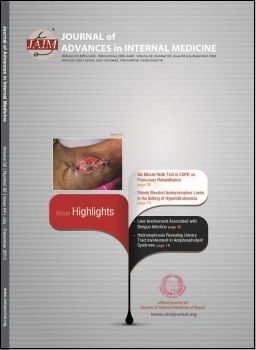Falsely Elevated Acetaminophen Levels in the Setting of Hyperbilirubinemia
DOI:
https://doi.org/10.3126/jaim.v2i2.8782Keywords:
Analytical Interference, falsely elevated acetaminophen, hyperbilirubinemiaAbstract
A 51-year-old male with a history of heavy alcohol abuse presented with alcoholic hepatitis and acute renal failure. Although he denied acetaminophen (APAP) ingestion, he was found to have elevated APAP levels that persisted and actually increased despite treatment with N-acetylcysteine. Review of the literature reveals that falsely elevated APAP levels may rarely occur with patients suffering from liver failure and felt to be related to severe hyperbilirubinemia. Interpretation of APAP levels in patients with severe liver disease and hyperbilirubinemia may be difficult and lead to diagnostic and therapeutic confusion.
DOI: http://dx.doi.org/10.3126/jaim.v2i2.8782
Journal of Advances in Internal Medicine 2013;02(02):74-77
Downloads
Downloads
Published
How to Cite
Issue
Section
License
This license enables reusers to distribute, remix, adapt, and build upon the material in any medium or format, so long as attribution is given to the creator.




